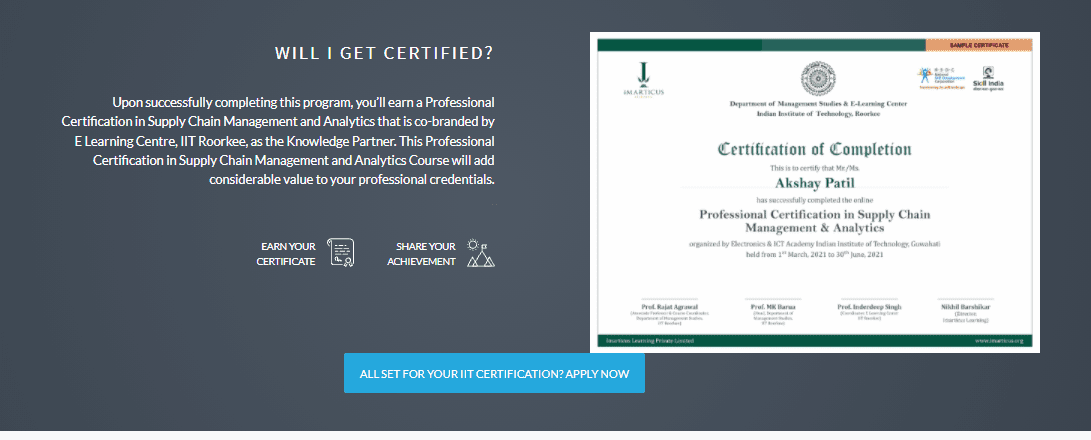Supply Chain Management (SCM) oversees the manufacturing of a product from its origin until it reaches the consumer. Although it may sound simple, it involves several processes and thus requires a set of skilled professionals to ensure its smooth functioning. It is such an essential job profile that people are rushing to find an ideal Supply Chain Management course to become qualified.
Not only is it popular these days, but its prospects also don’t seem to dim in the next 10 years. Could these be the reasons why the supply chain management career is going to be lucrative in the near future as well? Let’s find out!
It offers diverse job opportunities
The SCM career options are so vast that it is difficult to find which one would be the best. These days, every product in the market would have undergone countless planning processes, material procurement, assembly, production, inventory management, and many more steps. Each of these areas comes under the SCM and will need professionals with special skills. It also involves almost every industry in one way or the other, so the diversity of job opportunities is numerous.
Ideal for skill development

Skill development is trendy these days. A supply chain management career opens up the opportunity to brush up on several skills. These skills include management, interpersonal skills, communication, teamwork, networking, etc. They apply to all industries, so it is a great way of formulating a wonderful portfolio of both professional and personal skills. Sometimes it can be more productive in skill development than the leading supply chain management certificate course online.
Suitable for all
This is a wonderful career without the hassles of a corporate ladder where everyone is pressured to reach the top. A career here will let you enjoy success and give satisfaction with the prosperity of the company as well. There are opportunities for both management and executive roles and you can still reach the top positions.
Compatible with the technologies
A supply chain is a global industry that is now involved with the latest technologies as well. AI, predictive analysis, automatic cars, drones, etc., all can combine with the supply chain to make each industry successful. This will force people to be more adept at analytical and management skills with an awareness of the overall end-to-end happenings in this field.
Finding the best Supply Chain Management Course
There are plenty of supply chain management certification courses available online. But what makes the Professional Certification In Supply Chain Management & Analytics course in collaboration with the IIT Roorkee different is its hands-on learning process dealing with real-life SCM projects.
 Other than being a top course endorsed by an IIT, this allows the aspirants to become better at decision making. It also permits an in-campus interaction with other students and faculty.
Other than being a top course endorsed by an IIT, this allows the aspirants to become better at decision making. It also permits an in-campus interaction with other students and faculty.
By solving real-life industry problems, it helps in creating a personalized portfolio to impress companies. On top of that, the analytics help in combining the SCM with data and generate a few techniques to make data-centric decisions.
The best course should have a sparkling curriculum that has every step involved in the management from designing to the sales operation. The course could last anywhere from a few weeks to one year. The salary prospects after the completion of the course could be in the range of 3.5-20 LPA, depending upon the qualification, skills, and experience.
Conclusion
People often have different interests in their career and SCM is a fantastic option that can open up opportunities in almost every field. They can have a different career but could still be within the supply chain.





 Future-proof your
Future-proof your